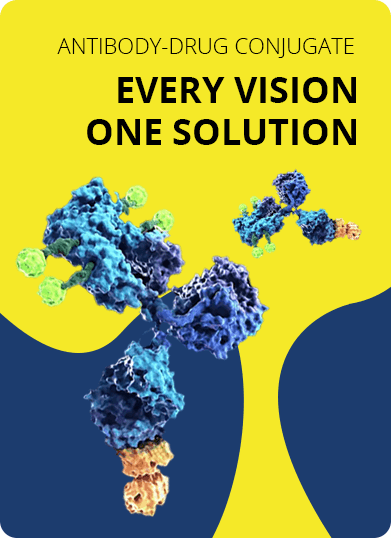- Home
- UTC Development
- Antibody-Immunostimulant Conjugate Development
- Antibody-TLR Agonist Conjugate Development
- Antibody-TLR3 Agonist Conjugate Development
Antibody-TLR3 Agonist Conjugate Development Service
Toll-like receptor 3 (TLR3) is a pattern recognition receptor that senses exogenous (viral) as well as endogenous (mammalian) double-stranded RNA in endosomes. On activation, TLR3 initiates a signal transduction pathway that culminates with the secretion of pro-inflammatory cytokines including type I interferon (IFN). The biological function of TLR3 has supported the development of various agonists for use as stand-alone agents or combined with other therapeutic modalities in cancer patients. As a senior ADC supplier, Creative Biolabs now focuses on the much wider market opportunity of antibody-TLR agonist conjugates. We now provide customized antibody-TLR3 agonist conjugate development services for our honor clients.
The Overview of TLR3 and TLR3 Agonist
TLR3 is expressed on tissue and blood dendritic cells, monocytes, mast cells, NK cells, and epithelial cells. Polyribosinic: polyribocytidic acid (Poly I:C), is a synthetic dsRNA complex, which directly activates DC and also triggers NK cells to kill tumor cells. In addition to being recognized by endosomal TLR3, it induces high levels of type I interferons (IFN) and activates several nuclear and cytoplasmic enzyme systems that are involved in antiviral and antitumor host defenses. It has been shown to have broad gene regulatory actions as well. Poly I:C induces prolonged survival of tumor-bearing rodents following IP or IV administration, and enhances antigen-specific responses to viral antigens, especially with anti-CD40. It appears to exert its therapeutic effects through eliciting antibody responses, enhancing cross-priming, stimulating anti-tumor CD8+ T cells, and antigen-specific CD4+ T cells.
Other TLR3 agonists include polyadenosine-polyuridylic acid (Poly A:U) and polyinosinic-polycytidylic acid stabilized with poly-L-lysine and carboxymethylcellulose (Poly-ICLC). The latter is a more stable version of the TLR3 agonist. Relative to other TLR agonists, poly IC is the most effective inducer of IFN, which seems to be required for DC maturation and development of CD4+ T cell-mediated immunity. It is the TLR3 agonist formulation most extensively tested as a single agent in humans with infectious diseases and cancers including glioblastoma, renal cell cancer, melanoma, leukemia, ovarian cancer, breast cancer.
Antibody-TLR3 Agonist Conjugates Development Service
Over the past few years, numerous studies have confirmed the ability of TLR3 agonists to support the activation of tumor-specific immune responses in mice and patients, especially when combined with other therapeutic modalities. Several targeted delivery systems, for instance, based on antibodies or cationic liposomes, can be employed which enables cellular uptake and increases the half-life of nucleic acids in the circulation. One promising approach to minimize off-target effects of targeted delivery systems on normal tissues is the introduction of antibodies that specifically bind to tumor cells, leading to the concept of antibody-TLR agonist conjugates.
Creative Biolabs is equipped with state-of-the-art research facilities and dedicated to helping our clients design and prepare highly customized antibody-TLR3 agonist conjugates. With advanced technology platforms and professional experiment services, we get ready to provide you with top-quality antibody-TLR agonist conjugate services. If you are interested in our services, please contact us for more details.
For Research Use Only. NOT FOR CLINICAL USE.

Online Inquiry
Welcome! For price inquiries, please feel free to contact us through the form on the left side. We will get back to you as soon as possible.
